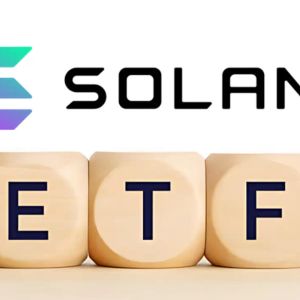
The SEC continues to chug along nicely under the crypto-friendly regime led by new chair Paul Atkins. The agency’s latest regulatory greenlight came in as it accepted the filing for the Invesco Galaxy Spot Solana ETF, a proposed exchange-traded fund (ETF) designed to track the spot price of Solana (SOL). The SEC has said it has received and is reviewing the application for the Invesco Galaxy Spot Solana ETF, which means it is not too far from making a decision that many expect to be an approval. The acknowledgement comes after Cboe BZX Exchange submitted a Form 19b-4 to propose a rule change for listing and trading the ETF, which initiates the SEC’s formal review process. BREAKING: SEC acknowledges Invesco Galaxy Spot $SOL ETF filing pic.twitter.com/utvILTqFEH — Cryptopolitan (@CPOfficialtx) August 13, 2025 Why the acknowledgement matters The filing is the latest Solana ETF to be filed this year and comes after the REX Shares SOL ETF Application was filed in May and marked “immediately effective,” signaling that the launch could happen soon. With the SEC’s acknowledgement, the Invesco filing joins filings from issuers like VanEck, 21Shares, Bitwise, Grayscale, Canary Capital, Franklin Templeton, and Fidelity who are also waiting for the SEC’s nod. Meanwhile analysts have remain optimistic despite the delay with many estimating a high chance that the SEC approves them by October, an optimistic outlook encouraged by Trump’s love of crypto and the existence of CME-listed Solana futures, which strengthens the argument for a spot product. There are kinks to be worked out Despite the Solana ecosystem’s excitement about a future ETF approval, the SEC has remained cautious, delaying decisions while citing the need for further evaluation. There is also the fact that the debate about whether Solana should be classified as a commodity or a security , which could impact approval, is still ongoing. Securities and commodities are regarded as two different financial instruments, and in America, they are regulated by two different government organizations. Where crypto is concerned, a legal determination that a cryptocurrency is either one of those financial instruments has far-reaching implications about how it can be sold, where it can be listed and who has the right to sue in the event an issuer oversteps the mark. If a cryptocurrency is classified as a security, cryptocurrency issuers and exchanges are required to seek the necessary licenses from their securities regulators, which is usually difficult to do. As such, the crypto industry does a lot to ensure that cryptocurrency sales and developments don’t trespass any securities laws. Most avoid violating the securities law through decentralization after all, if a cryptocurrency is created in such a way that a securities regulator is unable to identify a central, coordinated group responsible for pumping the value of the token, the asset is less likely to be considered a security. Any cryptocurrency that is classified as a security risks not getting listed by exchanges who want to avoid fines from the SEC for listing unregistered securities. The debate has heated up this year thanks to all the ETF filings but its outcome is anybody’s guess. One potential result would be some cryptocurrencies getting classified as securities, while others are classified as commodities. However, this could lead to an even more complex regulatory landscape where different cryptocurrencies are subject to varying rules and regulations. Get seen where it counts. Advertise in Cryptopolitan Research and reach crypto’s sharpest investors and builders.
